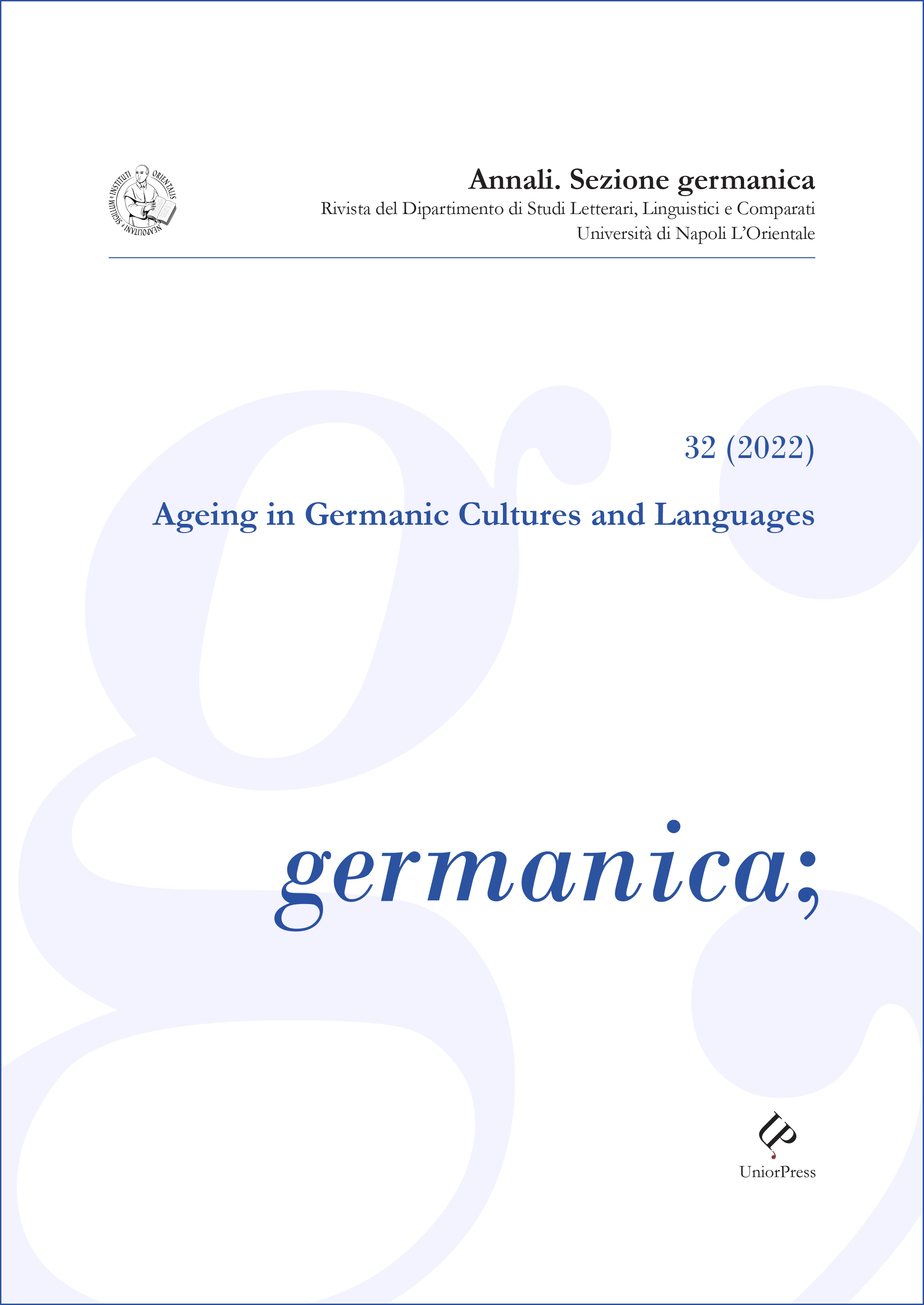Emotions and ageing: an acoustic and lexical analysis
DOI:
https://doi.org/10.6093/germanica.v0i32.10009Keywords:
emotions, verbalization of emotions, ageism, spoken language, non-pathological speechAbstract
Ageing and the linguistic expression of emotions are two concepts that have been studied from numerous points of view. This paper’s focus is a lexical and prosodic analysis of a corpus consisting of audio files taken from different sources (ZDF Mediathek, YouTube), whose protagonists are old people, native speakers of German. The aim is to investigate the way in which older German speakers express emotions, both from an acoustic-prosodic and lexical-semantic point of view. The results of the present analysis point out that, despite established works in the field regard ageing as a mainly negative concept – linked with images of deterioration, weakness and loss (cf. Butler 1969 and the concept of ageism) – positive emotions cannot be put aside when analyzing the emotional production of the elderly, both on the lexical and on the prosodic level. Thus, we suggest that ageing should not be studied from an ageism-perspective, but that it should be mainly regarded as a variable on the diastratic variation axis.
Downloads
Published
How to Cite
Issue
Section
License
The authors who publish in this Journal accept the following conditions:
- The authors retain the rights to their work and give the magazine the right to first publish the work, simultaneously licensed under a Creative Commons License - Attribution which allows others to share the work indicating the intellectual authorship and the first publication in this magazine.
- Authors may adhere to other non-exclusive license agreements for the distribution of the version of the published work (eg deposit it in an institutional archive or publish it in a monograph), provided that the first publication took place in this magazine.
- Authors can disseminate their work online (e.g. in institutional repositories or on their website) before and during the submission process, as it can lead to productive exchanges and increase citations of the published work (See The Effect of Open Access).


